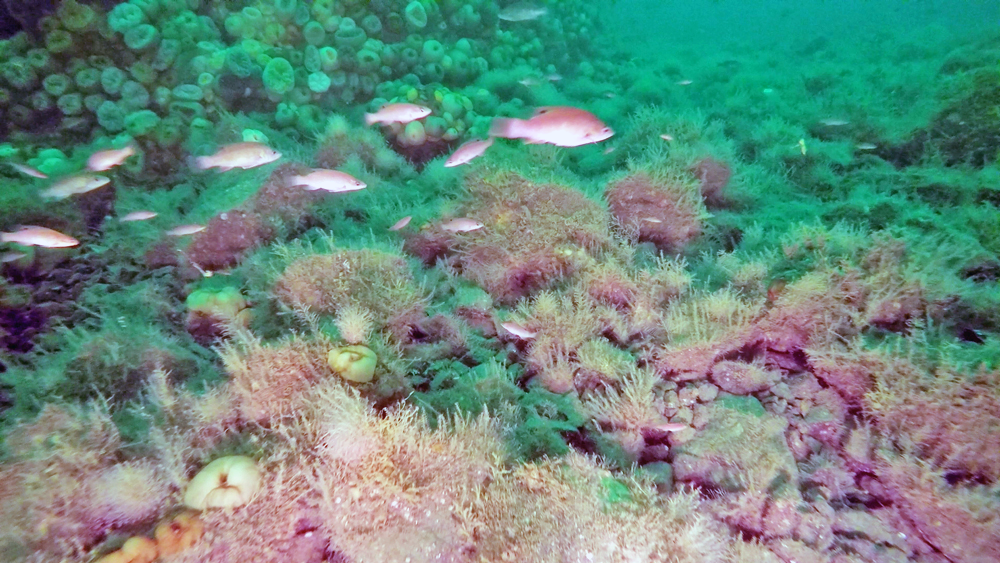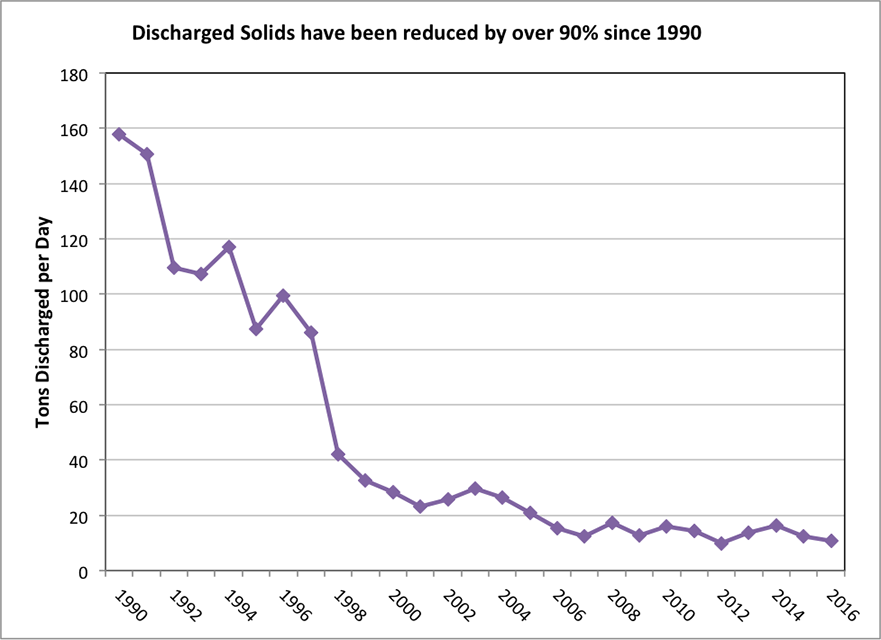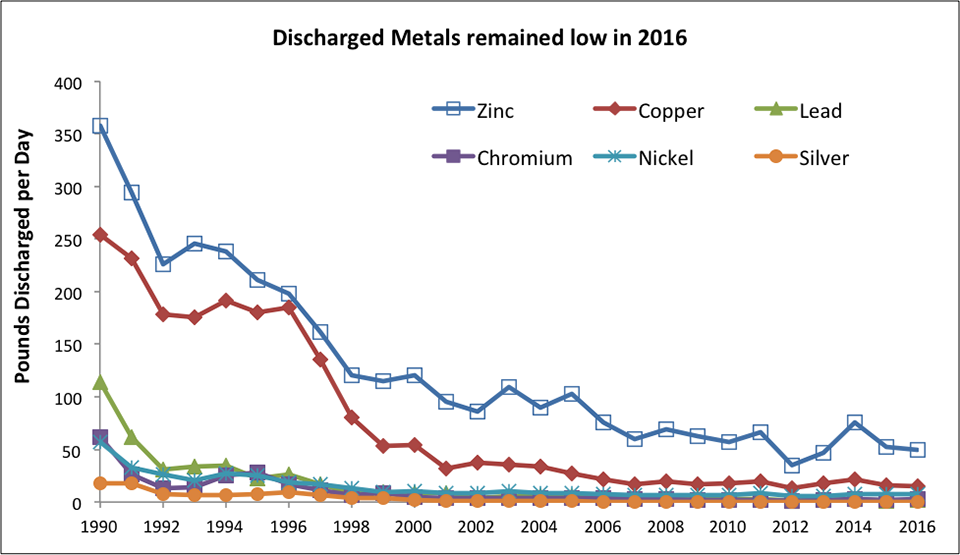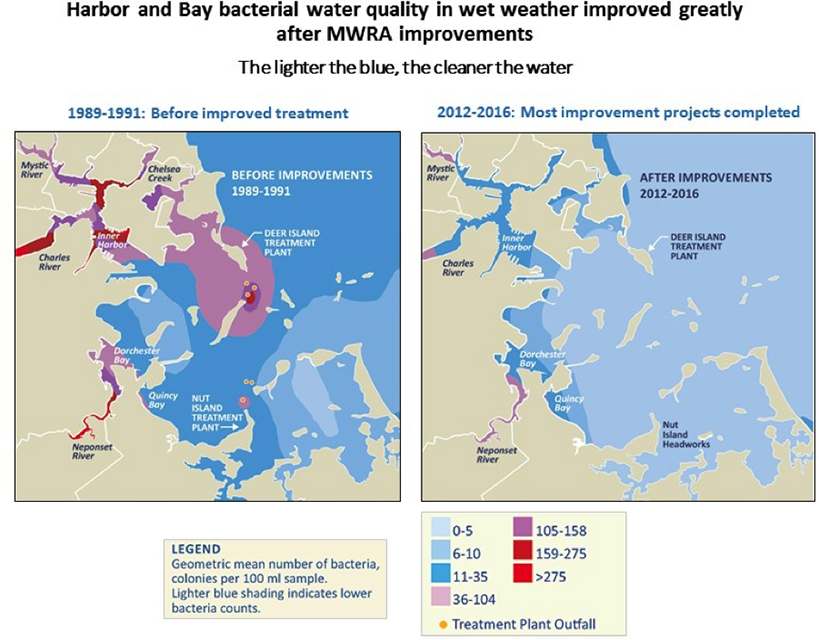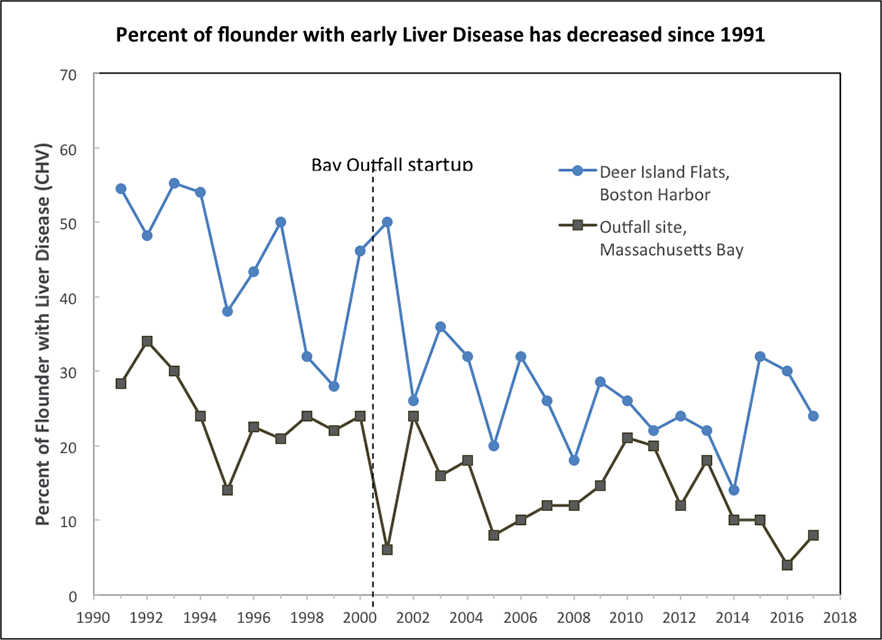MWRA is pleased to report that test results for 2016 show that the Deer Island Treatment Plant continues to operate as designed, and that discharges through the outfall tunnel had no unexpected effects on the waters or ecosystems of Massachusetts and Cape Cod Bays. In addition, no impacts of the outfall on the Stellwagen Bank National Marine Sanctuary were detected. Summaries of effluent results and ambient monitoring results follow. Detailed results are available in our Annual Outfall Monitoring Overview.
Massachusetts Water Resources Authority
PRESS RELEASE
DATE:
December 19, 2017
CONTACT:
Ria Convery
(617) 788-1105, ria.convery@mwra.com
MWRA'S Deer Island Treatment Plant and Outfall
Continue to Benefit Water Quality and Ecosystems
2016 Monitoring Data Released
Near the outfall, abundant animal communities, including cod, lobster and rock crab, are thriving. Normal communities of worms, anthropods and mollusks live nearby on the sea floor.
Watch the video on YouTube.
Deer Island Treatment Plant’s effluent continues to meet strict standards
In September 2000, MWRA began discharging treated wastewater (effluent) from Deer Island Treatment Plant into Massachusetts Bay through a 9.5-mile outfall. This has given Boston Harbor a chance to recover from years of receiving poorly treated sewage, while MWRA monitors to ensure that the Bay environment is not degraded.
For 2016, MWRA received the National Association of Clean Water Agencies Platinum 10 Peak Performance for the Deer Island Treatment for 100% compliance with effluent permit limits over ten consecutive years. MWRA is required to regularly test and report on the treatment plant and its effluent.
The amount of solids, or organic particles, in MWRA effluent remained low in 2016, under 11 tons per day. Overall, solids discharge levels have been reduced by over 90% since 1990, and are even lower than projections made before MWRA improved and upgraded sewage treatment. Solids are a concern as they could make the receiving water cloudy and contribute to reduced dissolved oxygen concentrations in the water and bottom sediments. Also, most metals and other priority pollutants attach to solids, so removing solids also removes metals and other pollutants from the effluent discharge into Massachusetts Bay.
Metals in effluent remained at low levels in 2016. Metals can be toxic to marine life, and their discharge has been greatly reduced by improved, secondary treatment and MWRA’s enforcement of industrial pre-treatment programs.
Treatment plant discharge does not degrade the ocean environment in Massachusetts Bay
Researchers test Massachusetts Bay water, sediment and plant/animal communities to ensure that the MWRA outfall’s treated effluent does not adversely impact the ocean or its inhabitants; in 2016 they detected no adverse impacts to the Bay.
Bacterial pollution, known to cause human health problems, was one of the main reasons for the creation of MWRA and the court-ordered Boston Harbor Project. In the early 1980s, bacterial pollution from untreated combined sewer overflows (CSOs), poorly treated wastewater, and daily discharges of sewage solids (sludge) resulted in widespread beach closures and unhealthy bacteria levels throughout the harbor, especially in wet weather. Many parts of Boston Harbor exceeded the Enterococcus bacteria swimming standard of 35 colonies/100 ml in wet weather, sometimes by five times or more!
Since 2012, after the completion of the Deer Island Treatment Plant and most CSO projects, water quality in most of Boston Harbor and its tributaries have consistently met the Enterococcus standard, even in wet weather. (See our printable pamphlet on Harbor and Bay bacteria.)
Flounder live on the ocean floor, and are affected by contaminants in the bottom sediments. In the mid-1980s, 12% of flounder tested in Boston Harbor had liver tumors related to environmental contamination. Tumors have not been observed in Boston Harbor flounder since 2004, and have never been observed in flounder caught near the outfall.
Flounder can also develop centrotubular hydropic vacuolation or CHV, an early liver disease that is linked with pollution and is thought to be a precursor to developing tumors. Levels of CHV in flounder have decreased since the early 1990s and remain low in 2016, even at the treatment plant discharge site in Massachusetts Bay.
More Information
For more information about water quality in Boston Harbor, its tributary rivers and Massachusetts Bay, visit our Harbor and Bay Water Quality Report page.
###
Updated April 3, 2018
